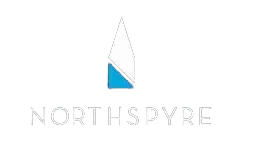Ready to launch your own podcast? Book a strategy call.
Frontlines.io | Where B2B Founders Talk GTM.
Strategic Communications Advisory For Visionary Founders
Conversation
Highlights
How Final Offer Cracked Real Estate Tech Distribution by Turning Industry Skeptics into Investors
Most proptech startups fail because they misunderstand a fundamental truth about real estate: you can’t disrupt an industry that runs on relationships. In a recent episode of Category Visionaries, Final Offer co-founder Tim Quirk revealed how his team turned this challenge into their biggest advantage by transforming industry veterans from skeptics into strategic investors.
The Power of Industry-First Product Development
While many startups begin with consumer pain points, Final Offer started by deeply understanding how top agents actually operate. As Tim explains: “We started to talk to a real professional who’s one of the top brokers in Boston, Kevin Caulfield, our fourth founder, and started to get into the nitty gritty on how top real estate agents actually operate, how they work.”
This research revealed a surprising insight: the industry’s lack of transparency wasn’t just hurting consumers – it was eroding trust among agents themselves. “We’ve actually polled almost 1000 real estate agents and we’ve asked them the question, do you trust other real estate agents? What do you think the percentage is of folks that don’t? That is 91% don’t trust their peers.”
The Strategic Pivot That Changed Everything
Final Offer’s early platform allowed buyers to submit offers directly, bypassing agents. It seemed logical – after all, direct submissions are legal. But the real estate community’s reaction taught them a crucial lesson about industry dynamics.
“When we first launched, when we test marketed this in Boston two years ago and we allowed buyers to come in and make offers on their own if they so chose… guess who got really upset with us? Real estate community,” Tim shares. “We made a decision within two, three months to say look, this is for the agents, this is who we’re for. Let’s require that buyers and sellers work with licensed agents regardless.”
Converting Industry Leaders into Growth Engines
Instead of fighting industry resistance, Final Offer found a way to transform it into rocket fuel for growth. Their fundraising strategy doubled as a distribution play: “The first three meetings went into real estate agents, each one of them wanted to invest a quarter million dollars into Final Offer… we’ve raised today now, and with the 11 million that we’ve raised in total, we’ve raised 80 real estate agents comprise a lot of that.”
These weren’t just any agents – they were influential industry leaders whose endorsement carried massive weight. Tim notes how having “tens of thousands of people following the top real estate coach in Canada… hearing that this is the right way to do business, that’s pretty powerful.”
Building Value Through Industry Education
Rather than just providing technology, Final Offer discovered an underserved need in agent education: “We actually built a certification program for agents to be able to learn how to negotiate. What’s incredible is that you can go through and do all this training… Guess what? They don’t typically have training on negotiation.”
This certification program, taught by top industry professionals, created a virtuous cycle. As Tim explains: “We’re providing practical training through experts that actually do it as part of their business. They’re able to then go and share the case studies and the stories and the strategies on how to actually use this with real world examples.”
The Results Speak Themselves
This industry-first approach has driven remarkable growth. After launching with just 93 subscriber agents in September 2023, they’ve since signed 50 enterprise brokerage accounts comprising over 10,000 agent users and 12,000 active listings.
The lesson for founders is clear: sometimes the fastest path to growth isn’t disruption – it’s empowerment. As Tim concludes: “Too many tech companies have tried to take the real estate community out of the equation, but it’s just not going to happen. The best real estate agents in the world, they’re amazing and they do great job.”
Actionable
Takeaways
Leverage Personal Experiences to Identify Market Needs:
Use personal frustrations and challenges as a springboard for innovation. Founders should consider their own experiences as potential gaps in the market that their venture could fill.
Build Solutions from Within the Industry:
Success in innovation often comes from understanding and integrating with existing industry practices. Develop solutions that enhance workflows and address concerns of industry professionals to encourage adoption.
Emphasize Transparency in Marketplaces:
Transparency is increasingly demanded across sectors. Startups should explore how increased openness in their operations or offerings can build trust and add value for their users.
Strategic Response to Industry Resistance:
Flexibility and adaptation are key when facing resistance. Be ready to pivot or adjust your business model based on constructive feedback from key stakeholders and industry professionals.
Harness the Power of Community and Networks:
Engage with professionals and stakeholders within your target industry as investors and advisors. Leveraging community and professional networks can facilitate growth, provide validation, and accelerate learning.



































